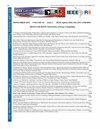摩洛哥利用农业残留物进行生物能源和发电:巴西的经验教训
IF 1.3
4区 工程技术
Q3 COMPUTER SCIENCE, INFORMATION SYSTEMS
引用次数: 0
摘要
巴西和摩洛哥的能源部门面临着严重依赖化石燃料消费的长期挑战。巴西是液化天然气(LNG)消费大国,而摩洛哥则是化石燃料进口大国。这种依赖不仅给摩洛哥带来巨大的进口成本,给巴西带来高昂的液化天然气和运输费用,而且还导致碳排放增加。因此,巴西和摩洛哥正在积极探索可再生能源的替代资源,以减少对天然燃料的依赖,并与全球可再生能源目标保持一致,包括《京都议定书》等协议中规定的目标。巴西和摩洛哥拥有丰富的可再生能源资源,包括风能、水能、太阳能和生物质能。如果可持续地利用这些资源发电,就有可能迅速推动这些国家实现低碳排放。本研究的重点是挖掘摩洛哥农业残留物发电的巨大潜力,而不是依赖化石燃料,从而为巴西能源部门利用充足的农业生物质发电提供借鉴。研究结果表明,摩洛哥的谷物、橄榄生物质、柑橘和椰枣残渣具有很高的能源和发电潜力,而巴西的谷物、柑橘和甘蔗则具有更好的生物能源和发电潜力。本文章由计算机程序翻译,如有差异,请以英文原文为准。
Bioenergy and Electric Power Generation from Agricultural Residues in Morocco: Lessons for Brazil
Brazil's and Morocco's energy sectors face a persistent challenge in their heavy reliance on fossil fuel consumption. Brazil is a big consumer of liquefied natural gas (LNG), while Morocco is a big fossil fuel importer. This dependence not only entails substantial import costs for Morocco and high NG liquefaction and transportation expenses for Brazil, but also contributes to elevated carbon emissions. Consequently, Brazil and Morocco are actively exploring substitute resources of renewable power to decrease their dependence on natural fuels and align with global renewable energy targets, including those set forth in agreements like the Kyoto Protocol. Brazil and Morocco boast an abundant array of renewable energy resources, including wind, hydro, solar, and biomass. Leveraging these resources has the potential to swiftly propel these countries towards a low-carbon emissions status when harnessed sustainably for electric power generation. Instead of relying on fossil fuels, the focus of this study is on tapping into the significant potential for power and electricity generation from agricultural residues in Morocco, giving the lessons to Brazilian energy sector for power and electric energy generation form ample agricultural biomass within Brazil. The results show a high potential for energy and electricity generation from cereals, olive biomass, citrus, and date palm residues in Morocco, while cereals, citrus, and sugarcane have better potential for bioenergy and electricity generation in Brazil.
求助全文
通过发布文献求助,成功后即可免费获取论文全文。
去求助
来源期刊

IEEE Latin America Transactions
COMPUTER SCIENCE, INFORMATION SYSTEMS-ENGINEERING, ELECTRICAL & ELECTRONIC
CiteScore
3.50
自引率
7.70%
发文量
192
审稿时长
3-8 weeks
期刊介绍:
IEEE Latin America Transactions (IEEE LATAM) is an interdisciplinary journal focused on the dissemination of original and quality research papers / review articles in Spanish and Portuguese of emerging topics in three main areas: Computing, Electric Energy and Electronics. Some of the sub-areas of the journal are, but not limited to: Automatic control, communications, instrumentation, artificial intelligence, power and industrial electronics, fault diagnosis and detection, transportation electrification, internet of things, electrical machines, circuits and systems, biomedicine and biomedical / haptic applications, secure communications, robotics, sensors and actuators, computer networks, smart grids, among others.
 求助内容:
求助内容: 应助结果提醒方式:
应助结果提醒方式:


